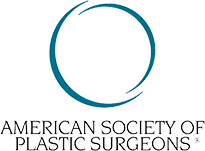Arrests at Unlicensed “Clinic” Highlight Need to Check Doctor’s Credentials, American Society of Plastic Surgeons Says
For Immediate Release: January 29, 2003
ARLINGTON HEIGHTS, Ill. – The arrests Friday of two individuals suspected of performing cosmetic surgery in an unlicensed “clinic” located in a two-family Lowell, Mass. house, clearly illustrates the need for potential plastic surgery patients to carefully check their doctor’s credentials, noted the American Society of Plastic Surgeons (ASPS).
“More than 7.5 million people chose to have cosmetic plastic surgery in 2001,” said ASPS President James Wells, MD. “Friday’s arrests are an unfortunate example of why patients interested in plastic surgery must be diligent in their research and selection of a surgeon.”
Lowell, Mass. health inspectors believe cosmetic surgery, including breast augmentation, was being performed at the unlicensed “clinic.” Authorities became aware of the situation when a patient sought medical attention for complications.
As plastic surgeons certified by The American Board of Plastic Surgery (ABPS), the primary concern of all ASPS members is the health and safety of their patients. ASPS offers the following tips to help potential plastic surgery patients select an ABPS-certified plastic surgeon.
| 1. | Call the ASPS Physician Referral Service at 1-888-4-PLASTIC or visit www.plasticsurgery.org – ASPS members are certified by The American Board of Plastic Surgery (ABPS), the only one of 24 boards approved by The American Board of Medical Specialties that certifies physicians in plastic surgery of the face and all areas of the body. To be ABPS board certified, a physician must: graduate from an accredited medical school; complete a combination of at least five years of general surgery and plastic surgery residency training; and pass comprehensive oral and written exams. |
| 2. | Seek a Complete Patient Evaluation – When a person is considering plastic surgery, he or she should consult with an ABPS-certified plastic surgeon for a complete examination, full medical history, discussion of goals and determination of the most appropriate treatment. |
| 3. | Be Comfortable with the Surgeon – During the consultation, potential patients should make sure the surgeon: has answered all questions thoroughly and clearly; asked for feedback on procedure recommendations; offer alternative treatments, when appropriate; welcomed questions about his or her professional qualifications, experience, costs and payment policies; articulated the risks and benefits of surgery and left the final decision about the procedure to the patient. |
| 4. | 4. Ask the Surgeon – Are you certified by The American Board of Plastic Surgery? Do you have hospital privileges to perform this surgery? If so, at which hospitals? (A patient can call the hospital to verify the information.) Where and how will you perform my surgery? Is the surgical facility accredited? What are the risks involved with the procedure? How long will the recovery period be? What kind of help will I need during recovery? Will I need to take time off work? If so, how long? How much will the procedure cost? |
The American Society of Plastic Surgeons is the largest organization of board-certified plastic surgeons in the world. With more than 6,000 members, the society is recognized as a leading authority and information source on cosmetic and reconstructive plastic surgery. ASPS comprises 94 percent of all board-certified plastic surgeons in the United States. Founded in 1931, the society represents physicians certified by The American Board of Plastic Surgery or The Royal College of Physicians and Surgeons of Canada.
